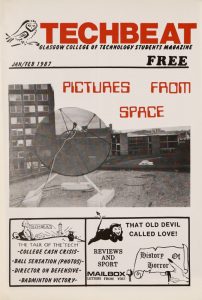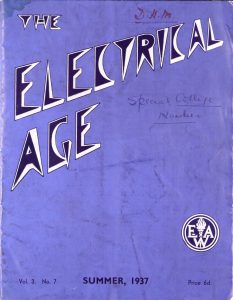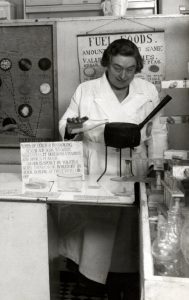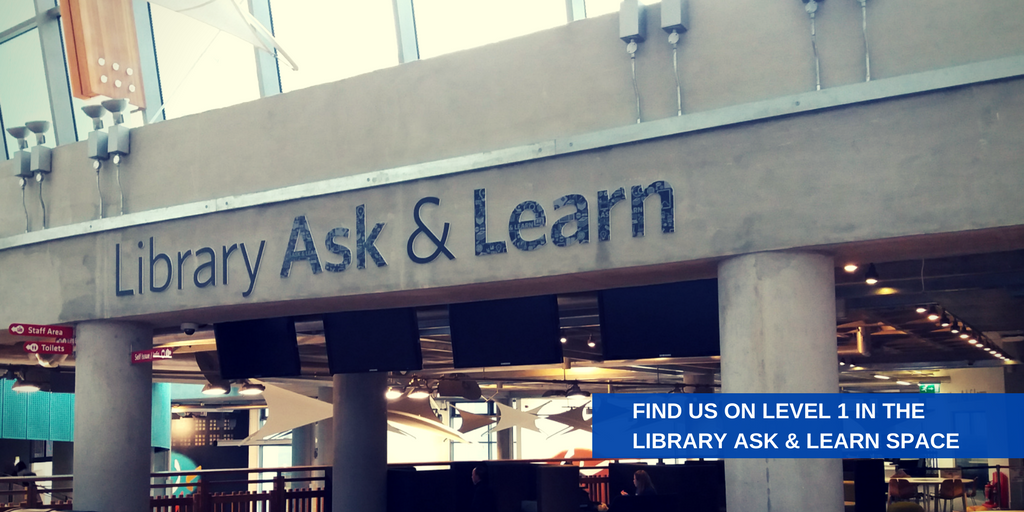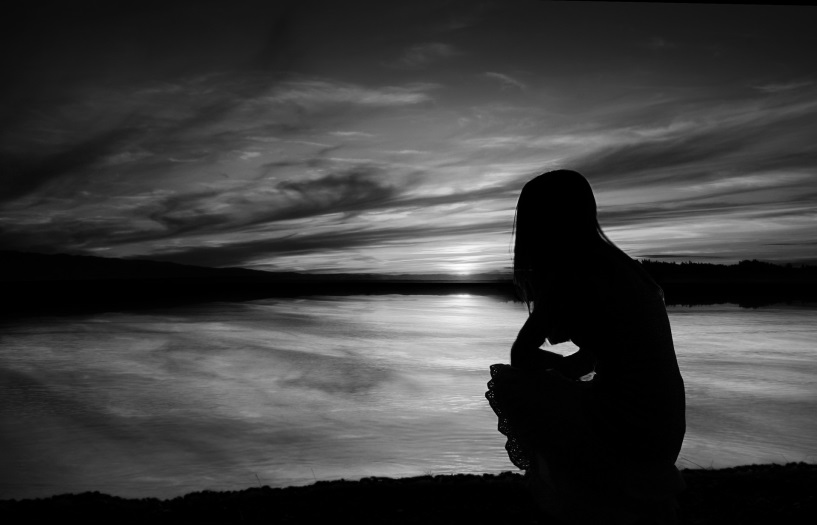Until the late 1980s, the current location of Glasgow Caledonian University was known as Glasgow College of Technology.[1] Upon sorting and listing recently, I came across several issues of Techbeat – the magazine for and by the students of GCT.
The student union magazine is a venerable staple of many higher education institutions. They were (and are) a chance for the student body to put its point of view across, to cover the issues that they find relevant, and hold power to account. To read one is to be exposed to a specific mind-set of youthful idealism mixed with scabrous humour.
The four issues of Techbeat span from Autumn 1986 to January/February 1987. They offer quite the insight into student life of the time. Some things it seems remain perennial – witness the sport page’s focus on all matters football (what we would give now for the luxury of bemoaning a poor performance by Scotland in the World Cup!). There are reviews of contemporary films (Tom Cruise in Ridley Scott’s Legend anyone?) and live music. A gig at the Edinburgh Playhouse by Christy Moore was described thus: Continue reading
